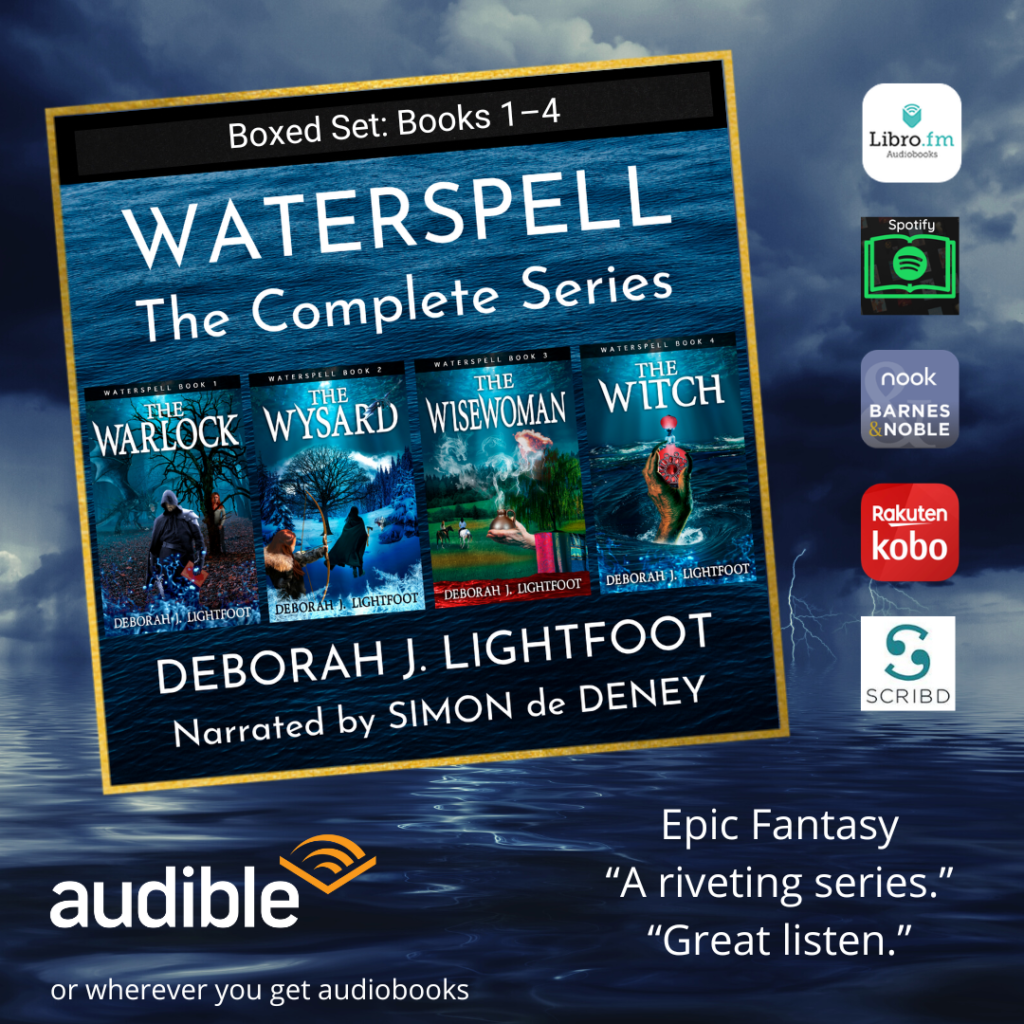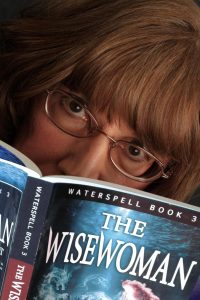 Recently I was asked if Instagram is good for writers. I believe it is. Or at least its “subsidiary,” nicknamed Bookstagram, works for me. I’m not on Twitter (I tried it but found it to be too frantically noisy). I’m suspicious of TikTok, which the FCC calls a national security threat. Besides that, I have neither the time nor the inclination to make a bunch of videos, not even bookish videos, and certainly not silly vids. As for Facebook: Fewer than 100 people follow my FB author page, and that number hasn’t changed in more than a year. Facebook’s algorithms work hard to keep your posts from being seen, if you don’t pay to boost your posts. And I don’t pay.
Recently I was asked if Instagram is good for writers. I believe it is. Or at least its “subsidiary,” nicknamed Bookstagram, works for me. I’m not on Twitter (I tried it but found it to be too frantically noisy). I’m suspicious of TikTok, which the FCC calls a national security threat. Besides that, I have neither the time nor the inclination to make a bunch of videos, not even bookish videos, and certainly not silly vids. As for Facebook: Fewer than 100 people follow my FB author page, and that number hasn’t changed in more than a year. Facebook’s algorithms work hard to keep your posts from being seen, if you don’t pay to boost your posts. And I don’t pay.
On Bookstagram, however, I quickly attracted 900 followers (for free!), and that figure increases weekly. They’re all bookish people, a curated population of readers, writers, teachers, librarians, publishers, and bookstore owners. The collaborative connections I’ve made there have resulted in several very nice reviews of my books, and in turn I’ve been introduced to the work of authors from all over the world. My ebook library now overflows with books I plan to read and review, to support other authors as many Bookstagrammers have supported me.
Bookstagram Pointers
Tips for Starting a Bookstagram covers nearly everything a newbie should know about launching a Bookstagram account and interacting with other book people. To that resource, I’ll add the following points, things I’ve learned in my year there:
Engagement is key. If you want people to like and comment on your posts, you must like and comment on theirs. Like all social media, Bookstagram can be an enormous time sink. You mustn’t let it take over your life, but you do need to set aside time for not only your own posting, but also for interacting with other people’s posts. I tend to peruse my Bookstagram feed during my coffee and lunch breaks, and sometimes in the evening when I should be reading.
 Canva is your friend. I’m not much of a photographer, and my aging Android phone doesn’t take especially good pictures unless the scene is perfectly lit. To get around that deficit, I use Canva heavily. I’ll spend an entire day creating Instagram posts at Canva, using the covers of my books and incorporating the nice reviews that I quote or screen-shoot from Amazon, Goodreads, etc. Creating Bookstagram content can take quite a lot of time, but I enjoy playing with designs at Canva, seeing how creative I can get. (Pictured is one of my recent designs, to promote the new Waterspell audiobook.) For me, Canva and Bookstagram together have become a fun way to showcase a different side of my creativity. If the words aren’t flowing during a writing session, I can go to Canva and play with pictures, and still feel like I’m being productive.
Canva is your friend. I’m not much of a photographer, and my aging Android phone doesn’t take especially good pictures unless the scene is perfectly lit. To get around that deficit, I use Canva heavily. I’ll spend an entire day creating Instagram posts at Canva, using the covers of my books and incorporating the nice reviews that I quote or screen-shoot from Amazon, Goodreads, etc. Creating Bookstagram content can take quite a lot of time, but I enjoy playing with designs at Canva, seeing how creative I can get. (Pictured is one of my recent designs, to promote the new Waterspell audiobook.) For me, Canva and Bookstagram together have become a fun way to showcase a different side of my creativity. If the words aren’t flowing during a writing session, I can go to Canva and play with pictures, and still feel like I’m being productive.
 Mix it up. My pattern is to alternate promos of my own books with quotes from famous authors, or writing-related memes, or the occasional review that I’ve written for somebody else’s book or audiobook. Over the course of years, I filled thick notebooks with admirable examples of other people’s writing, or with the wise words of established authors. Those notebooks have been a rich source of inspiration for my bursts of creativity at Canva. My Bookstagram followers always respond warmly to the quotes I share. Every writer needs a regular shot in the arm, an almost daily reminder that what we do, does matter. And that we’re not alone. Even famous authors have bad days and get one-star reviews or draw the ire of book-burners. Hardly a day goes by that I don’t see something inspirational on Bookstagram, something that validates me as a writer. The writers and artists who are active there support each other, celebrate each other’s successes, and commiserate with the setbacks.
Mix it up. My pattern is to alternate promos of my own books with quotes from famous authors, or writing-related memes, or the occasional review that I’ve written for somebody else’s book or audiobook. Over the course of years, I filled thick notebooks with admirable examples of other people’s writing, or with the wise words of established authors. Those notebooks have been a rich source of inspiration for my bursts of creativity at Canva. My Bookstagram followers always respond warmly to the quotes I share. Every writer needs a regular shot in the arm, an almost daily reminder that what we do, does matter. And that we’re not alone. Even famous authors have bad days and get one-star reviews or draw the ire of book-burners. Hardly a day goes by that I don’t see something inspirational on Bookstagram, something that validates me as a writer. The writers and artists who are active there support each other, celebrate each other’s successes, and commiserate with the setbacks.
Once a day is plenty. There seems to be a general consensus among Bookstagrammers that it’s poor form to post more than once daily. Which suits me fine. Only on rare occasions do I violate that unwritten rule. Many Bookstagrammers post only weekly, or 2–3 times a week.
Block the spammers and bots. Newcomers to Bookstagram are instantly deluged with “Promote it on” scams. Every one of those fake accounts uses the same wording — “Promote it on” — typically followed by some variation of “Writers Heaven” or “Writers Paradise.” (The bots aren’t imaginative.) To fend them off, go into Settings, find Privacy & Security, find “Edit comment settings,” and find Comment Filtering, where you can list Hidden Comments. There, paste the following list of terms that the scammers use. You’ll need to add new terms to the list from time to time, as the scammers tweak the wording (“Writers Heaven” becomes “Heaven of Writers”). As one of your first steps, however, when you create your new Instagram account, put the following terms in your “Hidden Comments” list, and you’ll vastly reduce the amount of junk that floods in from bots and scammers. Eventually, as they figure out you’re not going to pay them to “review” your book, the scammers move on to more gullible writers.
TheWriters_Heaven, _TheClassicWriter_, _thepoeticvalley_, author_paradise_, authors__paradise, authors_heaven, authors_paradise, authorsfam, empire.of.books, frozzenwhispers, frozzenwhispers_, heaven_of_author, inkpen_ig, paradise_of_author, penman, penman_ig, theauthorswarmth, thepoeticvalley, thepoetsvanity, thepotentatewriter, thewordrender, thewriters.paradise, thewriterswarmth, thewriterswarmths, writer.s_heaven, writersparadise._
It’s a Welcoming Community
As other thoughts occur, I may add to this post. For now, however, those are my main bits of advice for Bookstagram newcomers. I believe you’ll find, as I did, that it’s a welcoming community. Most of the writers and readers who are active on Bookstagram will follow you back, if you follow them. That reciprocity makes it fairly simple to grow your followers, in very little time, from zero to hundreds or even thousands.
I’ve been fairly selective about who I follow, being mostly interested in connecting with readers who might enjoy my books, and also with writers who work in my genre: traditional fantasy. I don’t follow many writers of urban fantasy, for instance, because I’m not trying to reach that specific audience. What works for them, in the way of promotion or reader engagement for instance, won’t necessarily apply to my efforts. From authors of epic or high fantasy, however, I’ve picked up many useful tips. I’ve learned about tropes and book blurbs and keywords. I’ve learned about online fantasy map generators, which is a new skill I really want to master.
 In turn, I’ve shared what I’ve learned about cost-effective book promotion. Pretty much the only time anyone reads this blog is when I share something on Instagram about my book-promo efforts, and I invite my IG followers to learn more at my blog. That’s when I get eyes on posts such as Book Promotion Sites: Ranked and its followup, Book Promo Overview. I’m glad to know that other writers are benefiting from my experiences in the often predatory and potentially expensive world of book marketing.
In turn, I’ve shared what I’ve learned about cost-effective book promotion. Pretty much the only time anyone reads this blog is when I share something on Instagram about my book-promo efforts, and I invite my IG followers to learn more at my blog. That’s when I get eyes on posts such as Book Promotion Sites: Ranked and its followup, Book Promo Overview. I’m glad to know that other writers are benefiting from my experiences in the often predatory and potentially expensive world of book marketing.
If you’re an author on Bookstagram, I’d love to hear from you. Please drop your comments in the box below. I have a huge amount to learn about that platform, and I welcome the advice of more experienced Bookstagrammers. Please comment, too, if you’re just getting started. I’ll do my best to answer your questions, or to refer you to more authoritative resources.
In closing: If you’ll follow me, I’ll follow you: BooksofWaterspell


























